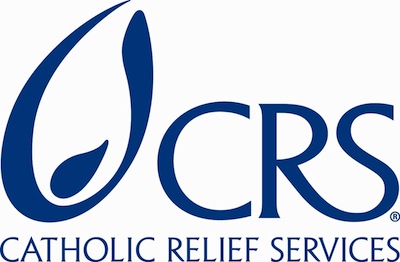
By Dennis Sadowski
Two Madagascar archbishops confirmed in talks with leading U.S. church leaders that Catholic Relief Services is not providing or facilitating access to contraceptives and abortifacients in its health care programs in their archdioceses.
The Population Research Institute had alleged in a series of reports in July that some CRS workers were engaged in family planning programs and the widespread distribution of contraceptives and abortifacients in the island nation off the southeast coast of Africa.
But Archbishop Desire Tsarahazana of Toamasina, president of the bishops’ conference of Madagascar, expressed “strong support” for CRS and told U.S. church leaders that although “there had been some confusion in his archdiocese that was quickly resolved” in the past, CRS is “acting in accord with Catholic teaching and does not provide or facilitate access to contraception or abortion,” according to a news release from the U.S. Conference of Catholic Bishops.
The archbishop spoke by phone Aug. 2 with Cardinal Timothy M. Dolan of New York, USCCB president, and Bishop Gerald F. Kicanas of Tucson, Ariz., chairman of the board of directors of CRS.
Archbishop Tsarahazana said he would “confer with the other members of his episcopal conference to confirm that no such immoral activity is taking place in their dioceses,” the USCCB release said.
Subsequently, Archbishop Odon Razanakolona of Antananarivo, Madagascar, told Bishop Kicanas that he was “surprised” to see himself quoted by PRI and that “he is sure that CRS follows Catholic teaching and is not involved in providing or facilitating access to contraception or abortion,” the USCCB said in a release issued late Aug. 5.
Carolyn Woo, CRS president and CEO, told Catholic News Service in an Aug. 3 email that some reports about the controversy had confused the family planning work of community health workers in Madagascar with that of CRS workers. The community health workers, who are part of the country’s public health system, had been trained by CRS on children’s health and malaria prevention but are not CRS employees, she said.
John Rivera, CRS director of communications, called the PRI allegations “simply false” in a July 30 statement on the agency’s website.
“As a pro-life organization, CRS programming does not include the promotion or distribution of artificial family planning or distribution of abortifacients in any country in which we work,” the statement said.
Several attempts by CNS to reach the Madagascar archbishops Aug. 5 and 6 were unsuccessful.
In its reports, PRI, which describes itself on its website as a “pro-life, anti-population control organization,” had quoted Archbishop Tsarahazana and Archbishop Odon Razanakolona of Antananarivo, the capital of Madagascar, along with several priests, as expressing concerns about the nature of CRS’ work in Madagascar.
The clergymen charged that CRS was working in some dioceses without the knowledge of local church officials, that the majority of CRS staff were not Catholic and perhaps did not feel they needed to adhere to church teaching on contraception and abortion, and that CRS engaged in “wasteful” spending habits involving “big cars and big salaries,” according to PRI.
PRI president Steven W. Mosher defended the series of reports, saying that Madagascar church officials were dissatisfied with the work of CRS.
“I have to tell you that they (Catholic clergy) were not happy with the way CRS was operating there,” he told CNS Aug. 1.
An Aug. 2 posting on PRI’s website said the organization was “delighted to know that the problems reported to us by the archbishop of Toamasina have now been resolved.”
Mosher said information was gathered by an investigator his organization sent to Madagascar in November and December. Mosher said the investigation began after unidentified CRS donors approached PRI with concerns about the misuse of church funds.
Woo said, however, that the investigator “posed as a donor” to obtain interviews with the bishops “and never explained that he was an online reporter doing research.”
The investigator, whom Mosher declined to identify in an interview with CNS, met with bishops and priests, an employee of an agency funded by the U.S. Agency for International Development and at least two community health workers identified as CRS employees.
The employees, according to the reports, admitted being part of family planning programs and distributing contraceptives.
In an online response July 26 to the first PRI report, Rivera acknowledged that CRS worked in Madagascar with the international humanitarian agency CARE on water and sanitation and “nothing else.” CRS’ relationship with CARE, which does provides contraceptives to women and other family planning services in separate programs among other services, was questioned in other online reports in July 2012.
Rivera also said in that statement that his agency works with volunteer community health workers “in compliance with government directives to work through existing local structures. We focus specifically on educating these community workers on nutrition, water and sanitation and malaria prevention. CRS in no way participated in the training of anyone on topics of contraceptives.” – CNS